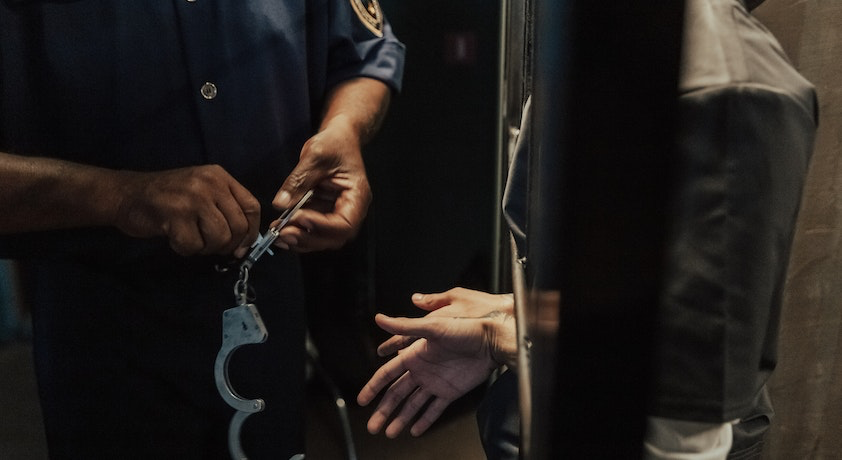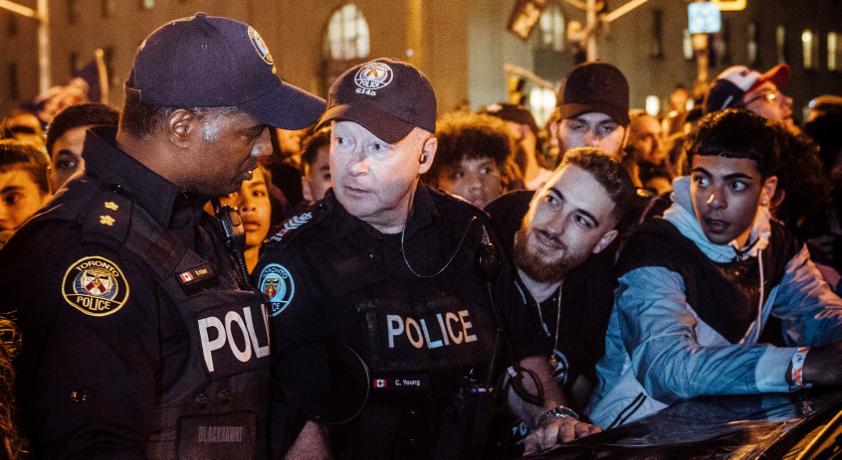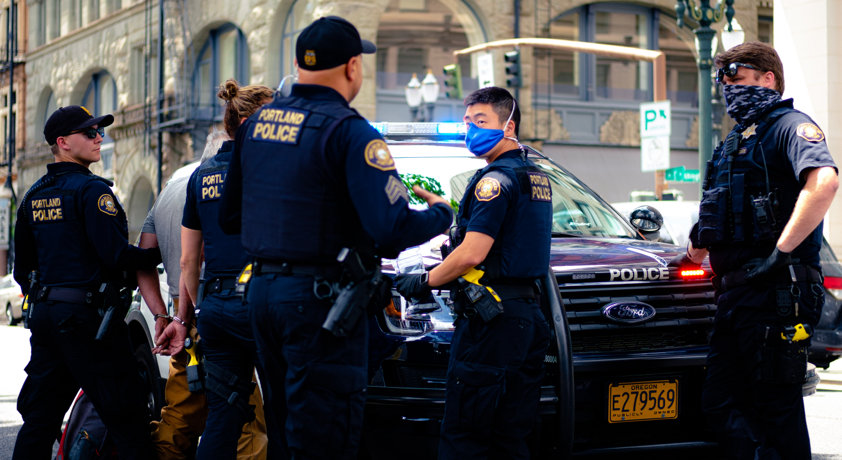Criminology: Understanding the Causes and Consequences of Criminal Behavior

Criminology is a field of study that is concerned with understanding the causes and consequences of criminal behavior. It is an interdisciplinary field that draws on knowledge from various disciplines, including psychology, sociology, biology, and law. In this article, we will examine the foundations of criminology, explore the causes of criminal behavior, analyze the consequences of criminal behavior, and discuss prevention and intervention strategies.
The Foundations of Criminology
Defining Criminology and Its Importance
Criminology is the scientific study of crime, criminals, and the criminal justice system. It seeks to understand the causes of criminal behavior and to develop effective strategies for preventing and responding to crime. The importance of criminology lies in its ability to provide insights into why individuals engage in criminal activities, as well as how the criminal justice system can be improved to better meet the needs of society.
One of the main goals of criminology is to identify the risk factors that contribute to criminal behavior. By understanding these factors, researchers and practitioners can develop targeted interventions that address the underlying causes of crime. For example, criminologists may study the impact of poverty, substance abuse, or mental illness on criminal behavior, and use this information to design programs that provide support and resources to at-risk individuals.
The History and Evolution of Criminology
The study of criminology has a long and complex history that can be traced back to ancient civilizations. In ancient Greece, for example, philosophers such as Plato and Aristotle wrote about the causes of crime and the role of punishment in deterring criminal behavior. In the Middle Ages, criminal law began to take shape in Europe, with the development of legal codes and the establishment of courts to adjudicate criminal cases.
However, it was not until the 19th century that criminology emerged as a distinct academic discipline. The Italian physician Cesare Lombroso is often credited with being the father of modern criminology, due to his influential work on the biological basis of criminal behavior. Lombroso argued that criminals were born with innate characteristics that predisposed them to engage in criminal activities and that these characteristics could be identified through physical traits such as skull shape or facial features.
Over time, the field has evolved to include a wide range of theoretical perspectives and research methods that seek to shed light on the complex nature of criminal behavior. Today, criminologists draw on a variety of disciplines, including sociology, psychology, biology, and law, to understand the causes and consequences of crime.
Key Theories and Perspectives in Criminology
There are several key theories and perspectives in criminology that have been developed over the years. One of the earliest and most influential is classical criminology, which suggests that individuals engage in criminal behavior because of the benefits that they perceive it will bring them. According to this perspective, people weigh the potential costs and benefits of engaging in criminal activities and choose to commit crimes when they believe that the benefits outweigh the risks of getting caught.
Other important perspectives include biological, psychological, and sociological theories. Biological theories suggest that some individuals may be predisposed to criminal behavior due to genetic or other biological factors. Psychological theories focus on individual factors such as personality traits, cognitive processes, or mental health issues that may contribute to criminal behavior. Sociological theories, on the other hand, emphasize the role of social factors such as poverty, inequality, or socialization in shaping criminal behavior.
In addition to these more traditional perspectives, criminology has also seen the emergence of critical perspectives that challenge traditional views of crime and criminal justice. Critical criminology, for example, emphasizes the role of power and inequality in shaping criminal justice policies and practices. Feminist criminology focuses on the ways in which gender shapes experiences of crime and victimization, and how gender bias may influence criminal justice outcomes.
Exploring the Causes of Criminal Behavior
Criminal behavior has been a topic of interest for criminologists for many years. The causes of criminal behavior are complex and multifaceted and can be influenced by a variety of factors. In this article, we will explore the different factors that contribute to criminal behavior.
Biological Factors and Criminality
One of the most controversial and heavily debated areas of criminology is the role of biology in criminality. Some researchers have suggested that genetic factors may contribute to criminal behavior, while others have focused on the effects of brain chemistry and hormonal imbalances. While there is no consensus on the role of biology in criminal behavior, it is clear that genetic and physiological factors can interact with environmental influences to increase the likelihood of criminal behavior.
For example, studies have shown that individuals with a family history of criminal behavior are more likely to engage in criminal activities themselves. Additionally, certain genetic mutations have been linked to aggressive and impulsive behavior, which can increase the likelihood of criminal behavior. Hormonal imbalances, such as low levels of serotonin, have also been linked to increased aggression and criminal activity.
Psychological Factors and Criminality
Psychological factors, such as personality traits and mental illnesses, have also been linked to criminal behavior. For example, individuals who are impulsive, aggressive, or unable to control their emotions may be more likely to engage in criminal activities. Similarly, mental illnesses such as schizophrenia and bipolar disorder may lead to criminal behavior if left untreated.
Additionally, childhood experiences such as abuse, neglect, and trauma can also contribute to the development of criminal behavior. Children who experience these types of negative experiences may be more likely to develop mental health issues and engage in criminal activities as a result.
Sociological Factors and Criminality
Sociological factors such as poverty, social exclusion, and low levels of education have been linked to criminal behavior. Individuals who live in disadvantaged neighborhoods or who lack access to education and employment opportunities may be more likely to engage in criminal activities due to a lack of other options. Similarly, social networks and peer pressure can also play a role in the development of criminal behavior.
Research has shown that individuals who grow up in poverty are more likely to engage in criminal activities than those who grow up in more affluent environments. This may be due to a lack of resources and opportunities, as well as exposure to crime and violence in their neighborhoods. Additionally, individuals who are socially excluded or marginalized may also be more likely to engage in criminal activities as a means of gaining power or recognition.
Environmental Factors and Criminality
The physical and social environment in which individuals live can also have a significant impact on their likelihood of engaging in criminal behavior. For example, exposure to violence, substance abuse, and other forms of trauma can increase the risk of criminal activity. Similarly, societal factors such as attitudes toward crime and the availability of guns and other weapons can also influence criminal behavior.
Studies have shown that individuals who are exposed to violence and trauma are more likely to engage in criminal activities than those who are not. This may be due to the development of mental health issues such as PTSD, which can lead to aggressive and impulsive behavior. Additionally, the availability of guns and other weapons can make it easier for individuals to engage in criminal activities.
The Consequences of Criminal Behavior
Impact on Victims and Their Families
Criminal behavior can have a devastating impact on victims and their families. Victims may experience physical and emotional trauma, financial hardship, and a loss of trust in others. Families may also experience a range of negative consequences, such as a loss of income, health problems, and social stigma.
Economic and Social Costs of Crime
Criminal behavior can also have a significant impact on society as a whole. The economic costs of crime include criminal justice system expenses, lost productivity, and property damage. Social costs include reduced quality of life, increased fear and anxiety, and a breakdown in trust and social cohesion.
The Criminal Justice System and Punishment
The criminal justice system is responsible for responding to criminal behavior and administering punishment. However, there is an ongoing debate about the effectiveness and fairness of the criminal justice system. Some argue that punishment should be harsh in order to deter crime, while others argue that rehabilitation and restorative justice programs may be more effective in reducing crime rates.
Rehabilitation and Reintegration of Offenders
The rehabilitation and reintegration of offenders is an important aspect of the criminal justice system. Effective rehabilitation and reintegration programs can help offenders to address the underlying causes of their criminal behavior, develop new skills, and reintegrate into society as law-abiding citizens.
Prevention and Intervention Strategies
Early Intervention Programs
Early intervention programs aim to identify and address risk factors for criminal behavior before they escalate. Such programs may include mentoring, tutoring, and social skills training for children and adolescents who are at risk of engaging in criminal activities.
Community-Based Initiatives
Community-based initiatives seek to address the root causes of criminal behavior by promoting social inclusivity, reducing poverty, improving education, and increasing access to healthcare and other resources in disadvantaged neighborhoods. Such initiatives may include community policing, social programs, and job training programs.
Policing and Law Enforcement Strategies
Policing and law enforcement strategies are designed to prevent and respond to criminal behavior by enforcing the law and deterring criminal activity. Effective policing strategies may include the use of community policing, intelligence-led policing, and problem-oriented policing.
Criminal Justice Reforms and Alternatives to Incarceration
Criminal justice reforms and alternatives to incarceration aim to reduce recidivism rates and promote rehabilitation. Such reforms may include the use of restorative justice programs, community-based sentencing, and drug treatment programs instead of incarceration for certain types of offenses.




